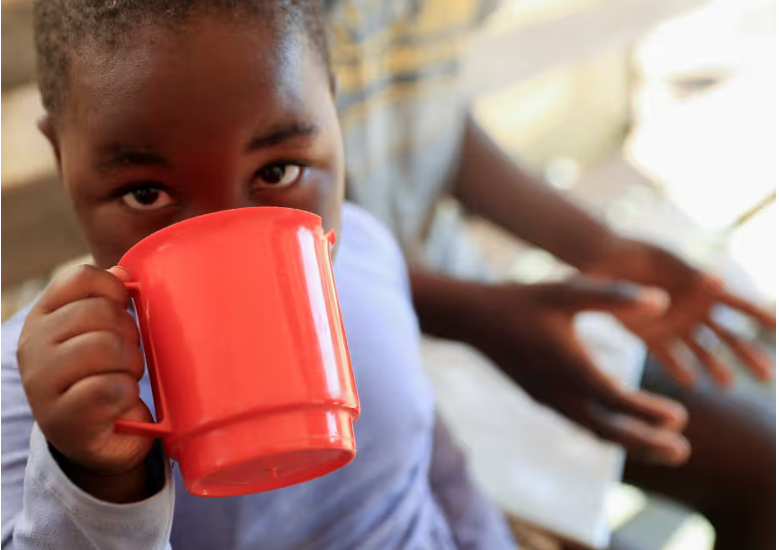We need resources to fight health impacts of climate crisis, Africans tell Cop28
- Hge News

- Dec 5, 2023
- 2 min read
Continent must have more resilient health systems and local vaccine manufacturing to prevent next pandemic, says public health body
Africa’s leading public health body is using the first ever health day at Cop on 3 December to call for increased funding to fight the health impacts of the climate crisis on the continent and create more resilient systems to ensure it is prepared for the next pandemic.
The Africa Centres for Disease Control and Prevention (Africa CDC) launched the second phase of its three-year, $1.5bn Saving Lives and Livelihoods drive this week, but its director general, Dr Jean Kaseya, said multiple disease outbreaks combined with the growing burden of non-communicable diseases and recovery from Covid means that much more financial support is needed.
A cholera patient is rehydrated at a clinic in Harare, Zimbabwe: 18 countries in Africa are affected by the disease with 4,000 deaths. Photograph: Philimon Bulawayo/Reuters

“We want our partners to understand that in Africa we are doing our best to provide funding to tackle these issues but we need more money from multilateral mechanisms such as the [World Bank] pandemic fund, [the US aid fund] Pepfar and the Global Fund,” said Kaseya.
“Between January and November 2023, Africa faced 158 disease outbreaks. These come immediately after Covid when economies were almost destroyed. Now countries have to respond to these outbreaks.”
He added that the climate crisis is a leading contributor to the problem, including the current rise in cholera cases. “Today we have 18 countries affected by cholera with 4,000 deaths; we have dengue in west Africa killing people.”
He added that Africa needed a resilient health system to be able to cope with every outbreak. “Each outbreak we miss can become a pandemic – and that is the major concern we have today. We don’t want the next pandemic to come from Africa due to climate change. This is why we are pushing for more funding.”
The 2013-2016 Ebola epidemic as well as Covid revealed the extent of Africa’s health insecurity, said Kaseya, and highlighted the need for African manufacturers of vaccines and other medicines. Speaking this week at the Conference on Public Health in Africa in Lusaka, Zambia, Kaseya likened the drive for local manufacturing to “Africa’s second independence”.
“When we had Covid, we discovered that Africa was abandoned. We saw we were not independent. Africa begged the world to get even masks and gloves.”





Comments